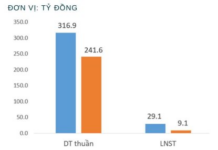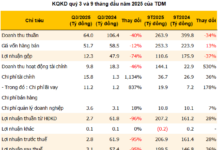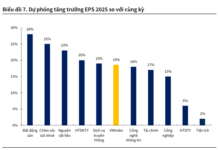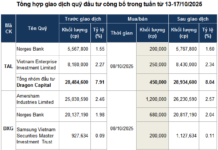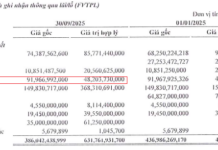“Cò” Land Auctioneers: A Complex Issue
The recent land auction in Tien Yen, Hoai Duc on August 19th has sparked controversy, with many accusing “cò” (middlemen) of manipulating the process. Lawyer Nguyen Doan Hong, Director of Danang International Law Company, asserts that there was likely collusion between these middlemen and powerful investors.
“I know that large-scale investors often employ a team of professionals to seek out projects and participate in land auctions. These can be real estate specialists or even freelance workers from various localities. Their task is to gather information and purchase auction documents at any time.
Their goal is to create a buzz and drive up prices, making genuine buyers feel that the auctioned land is highly sought-after, prompting them to bid higher. These middlemen often bid absurdly high prices, disorienting other participants and drawing them into a bidding war. They may even be acting on behalf of investors who have already purchased multiple lots and projects in the area to further stimulate the secondary investment market,” Mr. Hong explained.
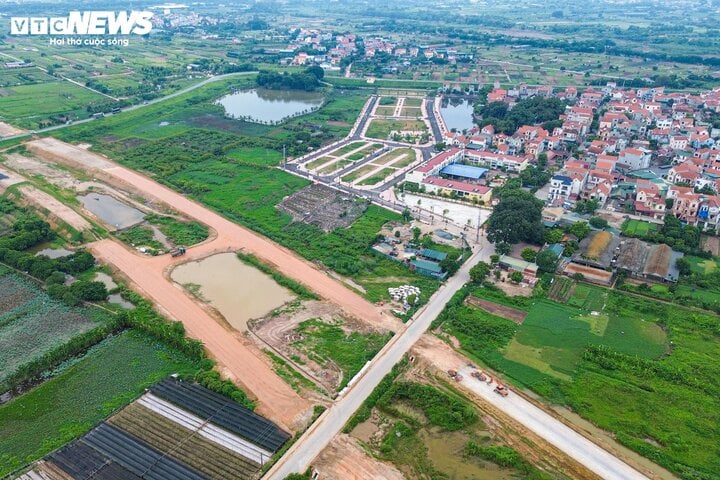
Land auction site in Hoai Duc (Photo: Minh Duc)
Mr. Hong further elaborated that speculators benefit from these tactics in multiple ways. Firstly, by creating a sense of urgency and hype, they can quickly resell the lots at a premium, as evidenced by the immediate resale of 19 lots in Hoai Duc with a profit margin of approximately VND 500 million per lot. Similarly, in Thanh Oai, auctioned lots were advertised with markups ranging from VND 200-500 million per lot.
With low deposit requirements, starting from just over VND 100-170 million per lot, speculators can afford to bid on multiple lots, knowing that even if they forfeit their deposit on one, the profit from selling the other at an inflated price will more than make up for it. This strategy of “releasing a hunting hawk to catch a sparrow” ensures their gains far outweigh any potential losses.
Secondly, beyond driving up prices at auctions, these middlemen also contribute to overall local land price inflation. This benefits speculators who may have already amassed large land banks in the area, allowing them to sell at higher prices without any additional effort.
From another perspective, independent real estate legal expert Nguyen Van Dinh views the auction’s outcome as economically normal, given that market forces determine prices in a free-market economy. He attributes the frenzy to the current land price framework, which is significantly lower than market transaction prices, making the auction’s starting price very attractive. Additionally, the low deposit requirement of 20% further encouraged excessive participation, resulting in aggressive bidding and price escalation.
Addressing Loopholes to Prevent Land Speculation
Lawyer Nguyen Van Tuan, Director of TGS Law Company, emphasizes the dangers of real estate market manipulation and the urgent need for effective regulations. He points out that the current legal framework, including Decree 139/2017/ND-CP, lacks clear guidelines for addressing market manipulation in the real estate sector, leading to a focus on other types of administrative violations.
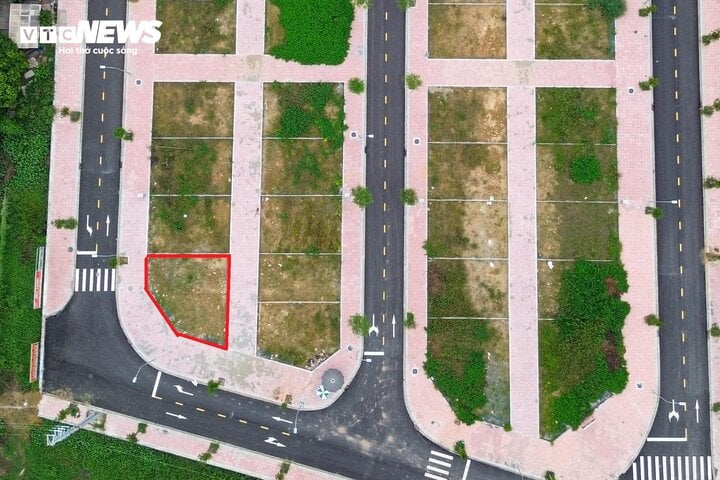
The auctioned land plot that fetched the highest price, exceeding VND 133 million/m2 (Photo: Minh Duc)
Mr. Tuan highlights that the Vietnamese Penal Code does not directly address real estate market manipulation, and any criminal charges would need to be derived from other offenses, such as fraud, abuse of trust, or deception of customers. He stresses the need for more specific regulations to tackle this complex issue effectively.
Mr. Tuan draws a comparison with the existing legislation on securities market manipulation, which clearly defines signs of market disruption, providing a basis for legal consequences. In contrast, similar disruptive behaviors in the real estate market, which can have equally detrimental effects on society, lack specific regulations for punishment.
To address this gap, Mr. Tuan believes that Vietnam’s legal system needs to evolve to bring real estate values back to reality, prevent negative economic impacts, and deter market manipulation. He also highlights the recent passage of the Law amending the Law on Auction of Assets, which introduces penalties for violations by auction participants, including those who win auctions but fail to fulfill their payment obligations.
Mr. Dinh agrees with the need for stricter regulations and suggests that authorities should actively monitor and scrutinize auctions, imposing legal consequences, including criminal charges, for any signs of price manipulation. He emphasizes the importance of transparency and proposes that authorities publicly expose and punish a few typical cases as a strong deterrent to potential violators.
Hai Phong rejects adjustment of 2 projects at Quan Mau traffic junction
PG Investment and Construction Joint Stock Company proposes a height adjustment in the planning, increasing from 9 to 21 floors for 2 projects that the company won in the auction. However, the People’s Committee of Hai Phong City did not approve the request…














